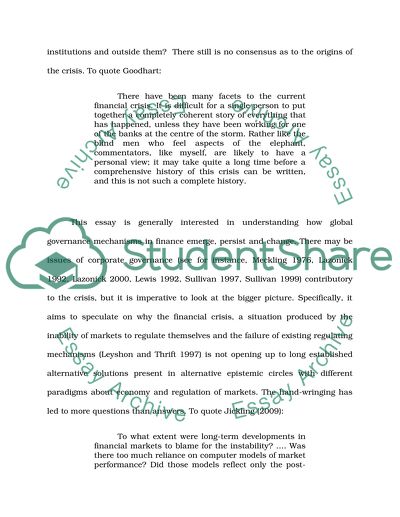Cite this document
(“Financialisation and the Financial Crisis: On Shifts in Governance of Essay”, n.d.)
Financialisation and the Financial Crisis: On Shifts in Governance of Essay. Retrieved from https://studentshare.org/finance-accounting/1445382-you-are-required-to-discuss-whether-the-causes-of
Financialisation and the Financial Crisis: On Shifts in Governance of Essay. Retrieved from https://studentshare.org/finance-accounting/1445382-you-are-required-to-discuss-whether-the-causes-of
(Financialisation and the Financial Crisis: On Shifts in Governance of Essay)
Financialisation and the Financial Crisis: On Shifts in Governance of Essay. https://studentshare.org/finance-accounting/1445382-you-are-required-to-discuss-whether-the-causes-of.
Financialisation and the Financial Crisis: On Shifts in Governance of Essay. https://studentshare.org/finance-accounting/1445382-you-are-required-to-discuss-whether-the-causes-of.
“Financialisation and the Financial Crisis: On Shifts in Governance of Essay”, n.d. https://studentshare.org/finance-accounting/1445382-you-are-required-to-discuss-whether-the-causes-of.


